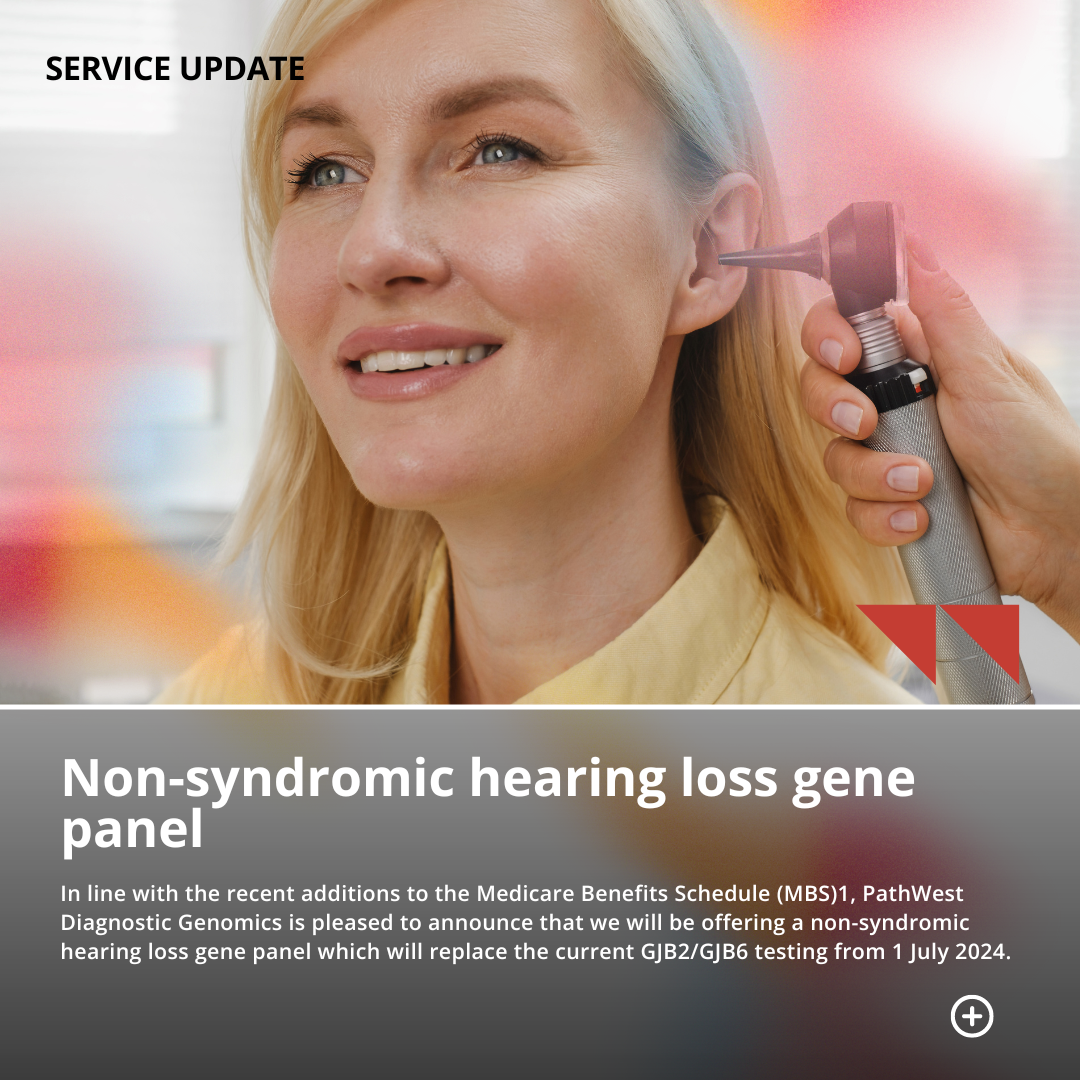Non-syndromic Hearing Loss Gene Panel Service Update

In line with the recent additions to the Medicare Benefits Schedule (MBS)1, the Department of Diagnostic Genomics at PathWest is pleased to announce that we will be offering a non-syndromic hearing loss gene panel which will replace the current GJB2/GJB6 testing from 1 July 2024.
The genes included in the non-syndromic hearing loss panel (including some overlap with syndromic conditions) performed at PathWest are: AIFM1, BDP1, CDH23, COL11A2, DIAPH1, EPS8L2, GJB2, GJB6, LOXHD1, MYO15A, MYO7A, OTOA, PCDH15, POU3F4, PRPS1, SLC26A4, STRC, TECTA, TMC1, TMPRSS3, USH1C, WFS1, WHRN.
Genes in this panel reflect local data as well as local and international literature2-4 with an expected diagnostic pick-up rate of up to 60%. Please note, the diagnostic yield of this panel is maximized in the following instances:
- Congenital hearing impairment with no identifiable infectious or traumatic cause and no other organ system involvement
- Isolated non-conductive hearing impairment with no syndromic features
- Bilateral, moderate, severe or profound hearing impairment.
To allow access to the Medicare rebate and avoid misdirected billing, we would like to request that the following is clearly stated on the request form:
- The patient has congenital or childhood onset hearing loss that presented before the patient was 18 years of age and,
- The hearing loss is permanent moderate, severe, or profound (>40 dB in the worst ear over 3 frequencies) and classified as sensorineural, auditory neuropathy or mixed.
Patients with a family history of hearing impairment or who have multisystemic features may access testing through Genetic Health of Western Australia (GHWA).
More information
PathWest Diagnostic Genomics
E: DiagnosticGenomicsQE.PathWest@health.wa.gov.au

